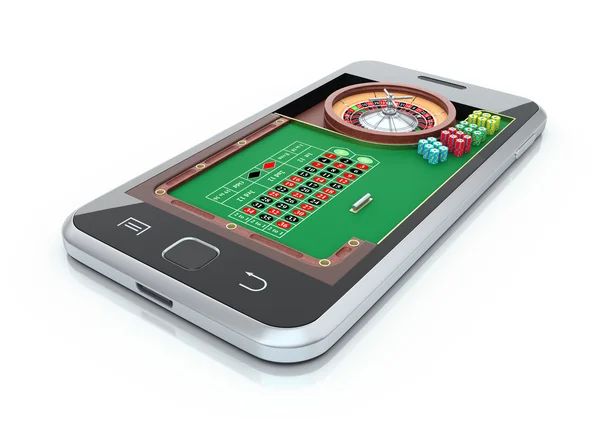Gambling can be an exhilarating experience, offering excitement, social interaction, and the possibility of financial gain. However, for many, it can also lead to mental and emotional exhaustion—commonly referred to as gambling burnout. Understanding the causes and consequences of gambling burnout, as well as implementing effective strategies to prevent it, is essential for maintaining a healthy relationship with gambling activities.
Understanding Gambling Burnout: Causes and Consequences
Gambling burnout occurs when an individual experiences a state of physical, emotional, or mental exhaustion related to their gambling activities. This phenomenon can lead to negative consequences that extend beyond the gaming table.
Causes of Gambling Burnout
- High Stakes Pressure: The thrill of betting large sums can lead to increased stress levels. The pressure to win can overshadow the enjoyment of the game.
- Overexposure: Spending excessive time in gambling environments can lead to fatigue, both mentally and physically. This includes online platforms and physical casinos.
- Loss Chasing: The urge to recover losses can create a vicious cycle, where individuals gamble more than they should, leading to exhaustion.
- Social Isolation: Gambling can sometimes be a solitary activity. When individuals neglect their social lives, loneliness can contribute to burnout.
Consequences of Gambling Burnout
- Emotional Distress: Feelings of anxiety, irritability, or depression can arise from prolonged gambling.
- Financial Strain: Excessive gambling can lead to significant monetary losses, exacerbating stress and resulting in poor financial decisions.
- Relationship Issues: Neglecting personal relationships in favor of gambling can lead to conflicts and isolation.
- Health Problems: Chronic stress from gambling burnout can result in physical health issues, including fatigue, insomnia, and other stress-related ailments.
Effective Strategies to Prevent Exhaustion in Gambling Activities
To maintain a healthy approach to gambling and avoid burnout, consider the following strategies.
1. Set Limits
Establish strict boundaries for both time and money. Decide in advance how much time and money you can allocate to gambling activities to help regulate your behavior.
- Time Limits: Set a timer before you start gambling. Limit sessions to a specific duration, such as no more than two hours at a time.
- Financial Limits: Set a budget for each gambling session. Stick to it, and don’t dip into other funds to chase losses.
2. Incorporate Breaks
Frequent breaks can help clear your mind and reduce stress. Use these moments to:
- Step outside for fresh air.
- Hydrate and have a snack.
- Reflect on your experiences and emotions.
3. Diversify Activities
Engaging in a variety of activities can help prevent burnout. Consider the following:
- Pursue Hobbies: Dedicate time to interests outside of gambling, such as sports, reading, or arts and crafts.
- Socialize: Spend time with family and friends, fostering connections that aren’t centered around gambling.
4. Practice Mindfulness
Mindfulness and meditation can help counteract stress and foster a healthier mindset. Consider implementing the following techniques:
- Breathing Exercises: Simple breathing techniques can calm your mind and reduce anxiety.
- Meditation: Regular meditation can help you develop a more balanced perspective on gambling.
5. Seek Professional Help if Necessary
If you find it challenging to manage your gambling habits, don’t hesitate to reach out for help. Professional counselors specializing in gambling addiction can provide valuable support and resources.
Comparative Table: Healthy Gambling Habits vs. Signs of Gambling Burnout
| Healthy Gambling Habits | Signs of Gambling Burnout |
|---|---|
| Setting personal time and financial limits | Feeling anxious or stressed before gambling |
| Taking regular breaks | Gambling for extended periods without pause |
| Balancing gambling with other activities | Increasing feelings of isolation or loneliness |
| Engaging in social activities | Chasing losses and increasing betting amounts |
| Practicing mindfulness regularly | Experiencing emotional distress or fatigue |
Conclusion
Gambling can be a pleasurable pastime, but it is essential to remain vigilant against the potential for burnout. By understanding the causes and consequences of gambling burnout and implementing effective strategies to prevent exhaustion, individuals can enjoy gambling responsibly and maintain their mental well-being. Remember to take breaks, set limits, and seek support when necessary to ensure your gambling experience remains enjoyable and healthy.
Answer Block: Questions 5-7
5. What are the symptoms of gambling burnout?
Symptoms of gambling burnout can include feelings of anxiety, frustration, irritability, and fatigue. Additionally, individuals may experience increased isolation, a lack of enjoyment in gambling activities, and a compulsive need to gamble to recover losses.
6. How can I maintain a balanced lifestyle while gambling?
To maintain a balanced lifestyle, set clear limits on your gambling activities, engage in various hobbies, spend time with loved ones, and practice mindfulness. Ensuring that gambling is just one aspect of your life can help you avoid burnout.
7. Is professional help necessary for gambling burnout?
While not everyone will need professional help, it is beneficial for those who struggle to manage their gambling behavior or experience severe emotional distress. Therapists specializing in gambling addiction can provide coping strategies and support tailored to individual needs.
